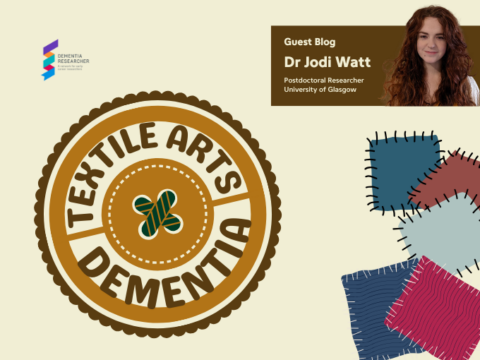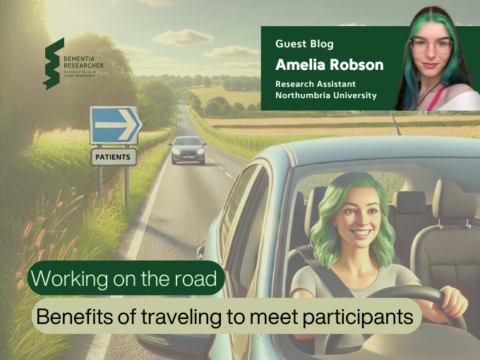I began my PhD before COVID-19; part way into my first year, the first national lockdown happened, and most, if not all of us, had our work and life routines changed. This last year has seen upheaval in people’s lives and some have faced up to acute financial and personal hardship; people’s lives have changed immeasurably and continue to do so. People have been impacted differently throughout the COVID-19 pandemic and lockdowns. My routine has changed, but I am fully aware that the change in my life pales in comparison to that of others, and so I must maintain a sense of perspective, without diminishing the challenges I may face.
My work routine has now become a bit different; making my way to the kitchen table every morning rather than the office! There have been positives and negatives; I missed some opportunities (conferences specifically), but I have been able to present work and chaired at virtual conferences. Working from home has ups and downs, but allowed me focus in writing up the systematic review.
 The first year of my PhD at the University of Liverpool allowed me to be part of two pieces of research. As mentioned in a previous blog entry, the first step of my PhD was a systematic review. We explored research globally which used routine datasets to investigate inequalities in dementia care pathways. This study was published last year, in the International Journal of Geriatric Psychiatry. We discovered that inequalities exist in health and social care access for people living with dementia (PLWD). We highlighted issues in dementia care pathways due to socio‐economic or protected characteristics. This illustrated the need for equitable service provision, culturally appropriate services, improved health literacy and increased provision for both early diagnosis and care at home to help narrow the gap in dementia care inequalities. There is also a greater need for research into dementia care pathways as a pathway; exploring the influence of socio‐economic factors from a person’s entrance into the system and throughout.
The first year of my PhD at the University of Liverpool allowed me to be part of two pieces of research. As mentioned in a previous blog entry, the first step of my PhD was a systematic review. We explored research globally which used routine datasets to investigate inequalities in dementia care pathways. This study was published last year, in the International Journal of Geriatric Psychiatry. We discovered that inequalities exist in health and social care access for people living with dementia (PLWD). We highlighted issues in dementia care pathways due to socio‐economic or protected characteristics. This illustrated the need for equitable service provision, culturally appropriate services, improved health literacy and increased provision for both early diagnosis and care at home to help narrow the gap in dementia care inequalities. There is also a greater need for research into dementia care pathways as a pathway; exploring the influence of socio‐economic factors from a person’s entrance into the system and throughout.
The second piece of research was qualitative work funded by the Liverpool Clinical Commissioning Group (CCG), and led by fellow NIHR blogger Dr. Clarissa Giebel! We asked carers and PLWD in Liverpool, about experiences of health and social care, and community support services. There was an emphasis on barriers to service access and quality care. Data collection began pre-COVID-19 (face-to-face interviews), and continued into the first lockdown in March 2020 (phone interviews). It was great to be part of a study that was trying to get to the heart of the potential issues which PLWD and their carers can face in attempting to access the right services at the right time. This study was recently published in the IJERPH.
My attention now turns to empirical, primary research. I am lucky in this sense that I am using secondary data – already collected by GP practices and held and facilitated by the Clinical Practice Research Datalink (CPRD) – so I needn’t recruit participants or carry out data collection. The same can be said of the analysis – with data access to data, software and a great deal of technical support available remotely, it has given me a lot of reassurance.
The data from the CPRD, covers GP practices from all across the UK, with records relating to patients’ medications, treatments, tests etc., and some demographic information. Initially I am looking to define who our patients are in terms of demographics, and the number of various records related to people (medical tests, medications, referrals etc.) There is also the potential to look into time-point analysis (e.g. survival analyses), and how survival may differ based on care use (or lack thereof), and socio-economic and geographic variables.
These initial analyses will help us understand how specific movements through healthcare and use of services can elicit different outcomes. These are the first few steps that will form the basis of an algorithm we hope clinicians will use in discussions with PLWD and carers, to make positive care choices, enabling better health outcomes.
This previous year has lain different challenges, and incredibly difficult situations at people’s feet, with carers and PLWD some of those acutely impacted – as highlighted in the study I mentioned earlier. There has been no more a pressing time for us to re-evaluate how health and social care and community services engage with, and interact with PLWD of all different backgrounds and with a variety of care needs.
I will be back once again later this year to update you on my analyses, having hopefully deciphered both the GP data I have access to, and the means and methods I will be using!
Author
James Watson is a second year PhD (2019) student at the University of Liverpool, exploring socio-economic and geographic variation in care pathways and their resulting health and economic outcomes for older populations. With a back ground in public health and local authority he previously worked as the primary analyst for older people’s health and dementia. He completed the Masters in Public Health at The University of Liverpool, with a dissertation exploring informal carers’ views and perceptions of providing end of life care to a family member.
How have you adapted to undertaking your research under lockdown? Let us know and reply below

 Print This Post
Print This Post





